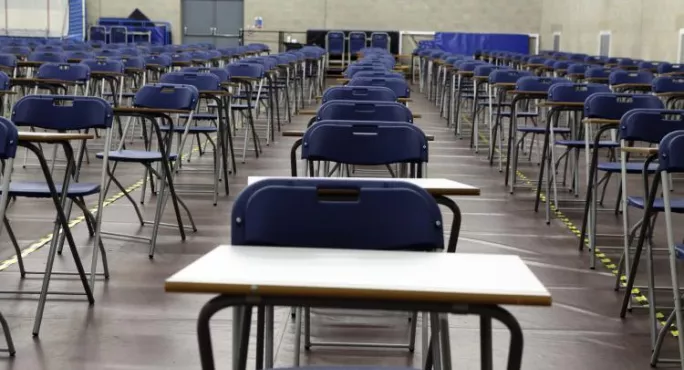It is normal for a school’s GCSE results to change from one year to the next - even when teaching quality remains the same, according to one of country’s biggest exam boards.
Researchers at Cambridge Assessment have called for “realistic expectations” of the system as, they argue, teachers cannot know what mix of abilities they’ll get in a particular class each year.
The new study, from researchers Cara Crawford and Tom Benton, says that volatility in schools’ GCSE exam results is “normal, quantifiable and predictable”.
Researchers say fluctuations are to be expected and can largely be explained by a change in the students between years or even just simple chance.
The report says: “Volatility happens, and it happens because students are not machines that can precisely access the same information from memory every single time it is required.
“It happens also because each year different students enter Year 11 at each school, and therefore they are not identical to the group of students that sat for the previous year’s GCSEs at that school.”
It adds: “Because there is chance involved, and because schools and their students change over time, it is natural that schools would see different results from one year to the next.”
Managing expectations
The researchers hope their study, Volatility Happens: understanding variation in schools’ GCSE results, will help schools to manage expectations and to interpret changes in performance from year to year.
Using data on GCSE performance between 2011 and 2015, from the Department for Education’s National Pupil Database, they found that the majority of volatility could be explained by normal variation in students’ abilities.
One in five schools were expected to have large changes in their percentage of A*to C English literature GCSE results between 2014 and 2015 - and only slightly more than this actually did, they found.
The new study questions whether schools should be held to account for changes in cohort attainment from year to year as, they say, exam results are “only partially attributable to teaching quality”.
It builds on an earlier study that said schools should be judged by their results over a period of at least five years rather than “condemned” on the basis of just one year’s performance
Today’s report concludes: “The most important thing is that as a teacher you don’t know what mix of abilities you’ll get in a particular class each year. Recognising this ensures we have realistic expectations of our education and assessment system.
“It’s normal for schools’ results to change - even when teaching practices stay the same.”
Want to keep up with the latest education news and opinion? Follow Tes on Twitter and like Tes on Facebook




